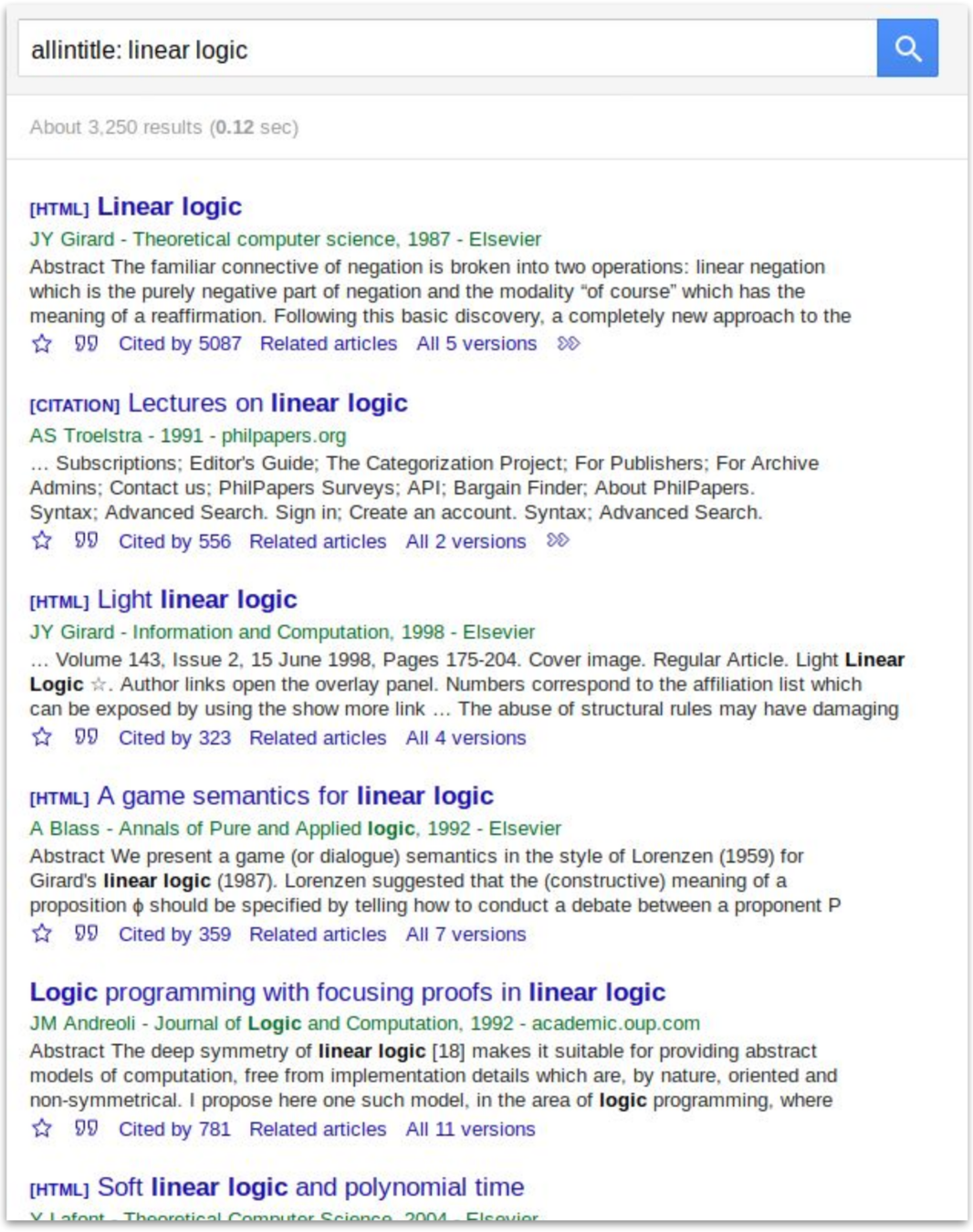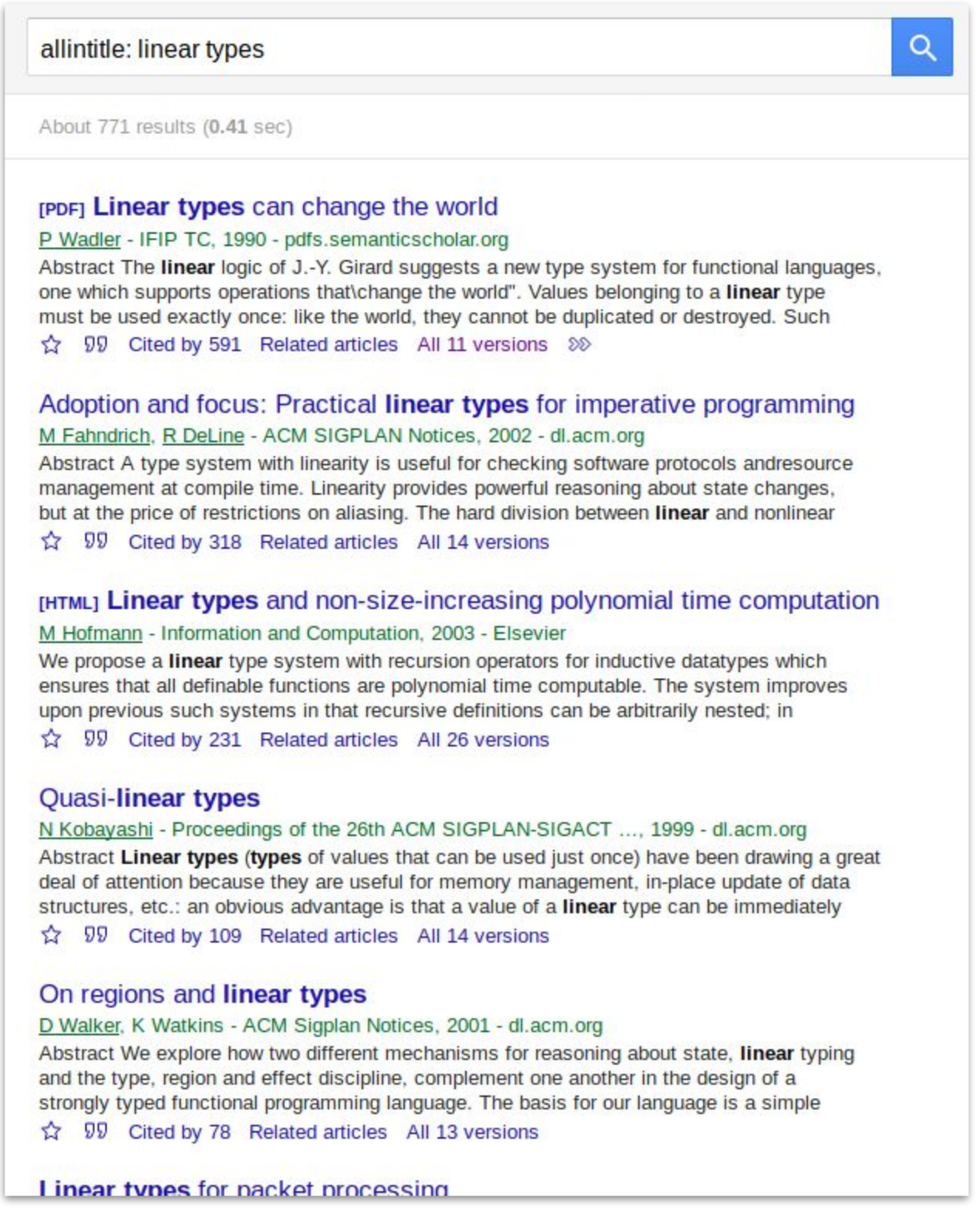Linear Haskell
By Arnaud Spiwack
Linear Haskell
Since 2016, I’ve been leading the effort to supplement the functional programming language Haskell with linear typing (in the sense of linear logic). That is you can write a type of functions which are allowed to use their arguments just once. The first iteration of this was released as part of GHC 9.0. This may seem like a curious property to require of a function. Originally, linear logic was motivated by proof-theoretic consideration. At first it appeared as a natural decomposition of the coherence-space models of classical logic, but it does have far reaching proof-theoretical considerations. I’m one to take the connection between proof theory and programming languages (the Curry-Howard correspondence) quite seriously. Linear logic has almost immediately been seen, from a programming language standpoint, as giving a way to model resources in types. But what this concretely means is not super clear. In this talk I will describe the sort of practical benefits that we expect from linear types in Haskell today. They are, in particular, related to Rust’s ownership typing, though I don’t know whether I will have time to explain this in detail. At any rate, I am not going to spoil the entire talk here. I’d do a bad job of it in these handful of lines, anyway.









